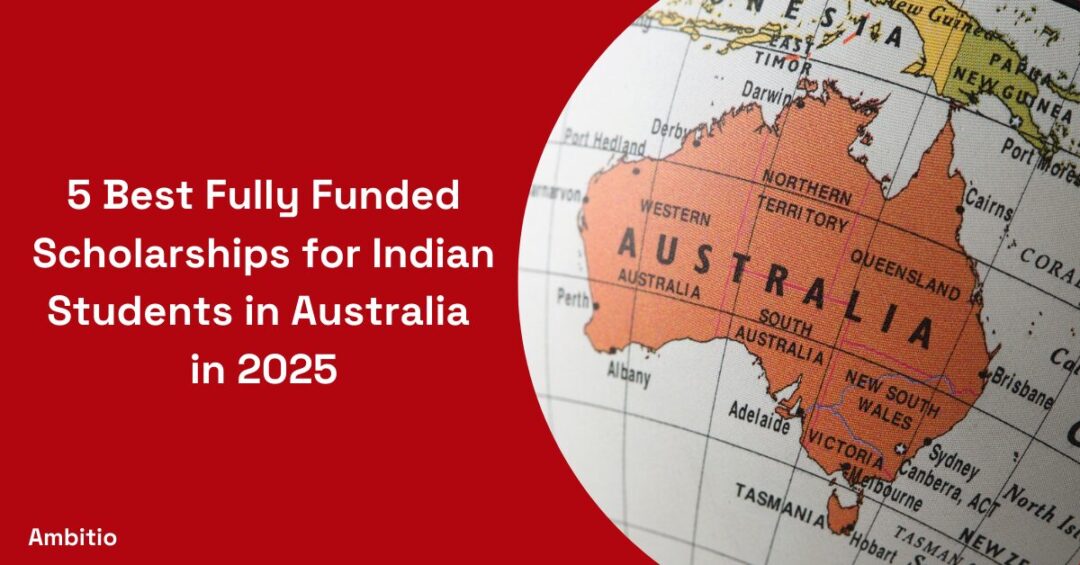11 December 2024
6 minutes read
Navigating the Realm of Development Studies in Australia: Mastering International Development

Introduction
In an increasingly interconnected world, the field of Development Studies gains more relevance each day, particularly in nations like Australia, where a unique blend of academic excellence and practical experience shapes future leaders in international development.
Australia’s universities offer a diverse array of programs in Development Studies, especially at the master’s level, focusing on equipping students with the knowledge and skills to address global challenges.
This blog delves into why Australia stands out as a prime destination for studying Development Studies, emphasizing master’s programs, university offerings, and the resultant career pathways.
The Evolving Scope of International Development in Australia
Australia’s distinctive approach to international development merges rigorous academic standards with practical, real-world applications. This is prominently reflected in the Master of Development Studies programs offered by various Australian universities.
These programs are tailored to confront global issues, benefiting from Australia’s rich cultural diversity and unique geographical position.
The Pioneering Universities in Australian Development Studies
University of Sydney
Renowned for its holistic Master of International Development program, the University of Sydney emphasizes policy development and practical implementation strategies.
The curriculum here is designed to prepare students for real-world challenges in international development, combining theoretical knowledge with practical skills.
Murdoch University
Offering a specialized Master of Development Studies degree, Murdoch University focuses on community development. This program is notable for its emphasis on local community needs and how these intersect with broader global development goals.
University of Queensland and Deakin University
Both institutions offer a blend of theoretical knowledge and practical skills. Their programs are designed to provide a deep understanding of development issues and equip students with the tools necessary for effective intervention in various development contexts.
Australian National University
This university is recognized for its Master of Global Development, integrating aspects of international relations, sustainable development, and global health. The program’s multidisciplinary approach offers a comprehensive perspective on development challenges and solutions.
James Cook University and the University of Melbourne
These universities focus on global health and international trade within their international development curriculum, acknowledging the growing importance of these sectors in the global development landscape.
Comprehensive Curriculum: A Deep Dive into Development Studies
The Master of Development Studies programs in Australia are designed to offer a holistic understanding of both national and global development issues.
Courses typically include modules on development economics, project management, public health, and sustainable development. This comprehensive curriculum aims to equip students with a broad skill set, making them valuable assets in the development sector.
Australian Universities’ Unique Approach to Development Studies
Australian universities are known for their participatory approach to education. In the realm of Development Studies, this means that students are encouraged to engage actively with the course material, often through case studies, fieldwork, and interactive projects.
This hands-on approach helps students apply theoretical knowledge to real-world situations, a crucial skill in the field of international development.
The Flexibility of Online Learning and Varied Entry Requirements
Many Australian universities offer flexible online courses in Development Studies, catering to a diverse range of students, including those who cannot attend on-campus classes.
The entry requirements for these programs vary, typically requiring an undergraduate degree with a credit average of 65. Some programs may have additional prerequisites or require proof of English language proficiency.
Scholarships and Financial Aid: Making Education Accessible
Australian universities understand the importance of making education in Development Studies accessible to a wide range of students. Here are key points regarding the scholarships and financial aid available for students pursuing Development Studies in Australia:
- University-Specific Scholarships:
- Many Australian universities offer scholarships specifically for students enrolled in Development Studies and related programs.
- These scholarships may cover a portion of tuition fees, living expenses, or both.
- International Student Scholarships:
- Dedicated scholarships for international students to promote diversity and inclusion on campus.
- Often awarded based on academic merit, financial need, or specific criteria such as country of origin.
- Government Scholarships:
- The Australian government offers scholarships like the Australia Awards, intended for students from developing countries.
- These scholarships aim to contribute to the development needs of Australia’s partner countries.
- Research Grants and Fellowships:
- Available for students undertaking research as part of their master’s program in Development Studies.
- Can provide funding for fieldwork, research materials, and travel.
- Need-Based Financial Aid:
- Some universities and external organizations offer financial aid based on the student’s financial situation.
- Students may need to provide evidence of their financial circumstances to qualify.
- Work-Study Opportunities:
- On-campus jobs or work-study programs to help students finance their education while gaining valuable work experience.
- Positions may be available in university departments, research projects, or administrative offices.
- External Scholarships from NGOs and Foundations:
- Various NGOs and private foundations offer scholarships for students pursuing studies in fields like international development.
- These scholarships often focus on specific areas such as sustainability, community development, or global health.
- Loan Programs for Domestic and International Students:
- Loan programs may be available from both Australian and international banks or financial institutions.
- Some universities provide guidance and support in applying for educational loans.
- Scholarships for Indigenous and Torres Strait Islander Students:
- Special scholarships aimed at supporting Indigenous Australian students in higher education.
- Aimed at promoting equal opportunities and representation in academia.
- Alumni Scholarships and Discounts:
- Some universities offer scholarships or tuition fee discounts to alumni or family members of alumni.
- Encourages continuing education and loyalty to the institution.
- Partnership Scholarships:
- Universities may have partnerships with corporations or international organizations that provide scholarships for specific programs or nationalities.
- Universities may have partnerships with corporations or international organizations that provide scholarships for specific programs or nationalities.
- Bursaries and Grants for Specific Needs:
- Bursaries for students who face particular challenges or hardships.
- Grants are available for specific purposes, such as attending conferences or conducting fieldwork.
These financial aids and scholarships significantly reduce the financial burden on students and make it feasible for a more diverse group of candidates to pursue their academic and professional goals in Development Studies in Australia.
Career Prospects: Transforming Education into Impact
Graduates of Development Studies programs in Australia find themselves equipped with the knowledge and skills necessary to make a significant impact in various sectors. Here are some key career prospects outlined in points:
- International Aid Organizations:
- Roles in program design, implementation, and evaluation.
- Opportunities in both field-based and administrative positions.
- Involvement in emergency response and long-term development projects.
- Public Health Sector:
- Positions in health policy development, project management, and community health initiatives.
- Work with government and non-government organizations to address health disparities.
- Opportunities to engage in research and advocacy on global health issues.
- Government Agencies:
- Roles in policy development, research, and diplomatic services.
- Engagement in international relations and foreign aid programs.
- Positions often involve collaboration with international bodies and NGOs.
- Non-Governmental Organizations (NGOs):
- Varied roles including project management, advocacy, and community development.
- Opportunities to work on specific issues like poverty alleviation, education, and environmental sustainability.
- Roles may include both local and international assignments.
- Sustainable Development Projects:
- Work on initiatives focused on environmental sustainability and economic development.
- Engagement in planning, executing, and monitoring sustainable development programs.
- Collaboration with communities, governments, and international organizations.
- Research and Academia:
- Opportunities for research in development studies, policy analysis, and related fields.
- Positions as educators and lecturers in universities and educational institutions.
- Contribution to academic publications and participation in international conferences.
- Consultancy in International Development:
- Providing expert advice to governments, NGOs, and international agencies.
- Involvement in project appraisal, monitoring, and evaluation.
- Opportunities to specialize in areas like development economics, humanitarian aid, or conflict resolution.
- Humanitarian Aid and Crisis Management:
- Roles in managing and coordinating emergency response to crises.
- Work with international teams in areas affected by natural disasters, conflicts, or other emergencies.
- Involvement in planning and implementing relief and recovery efforts.
- United Nations and Other International Bodies:
- Positions in various UN agencies and international organizations.
- Involvement in global initiatives and programs addressing international development issues.
- Roles may include policy analysis, program management, and diplomatic engagement.
- Corporate Social Responsibility (CSR) and Sustainability:
- Roles in CSR departments of large corporations, focusing on sustainable practices and ethical business.
- Engagement in community outreach, sustainability reporting, and stakeholder engagement.
- Work on aligning corporate goals with sustainable development objectives.
- Entrepreneurship and Social Enterprise:
- Opportunities to start or join social enterprises focusing on development issues.
- Innovation in creating business solutions to address social and environmental challenges.
- Involvement in impact investing and social entrepreneurship networks.
These career paths are not only diverse but also offer the potential for significant personal and professional growth, allowing graduates to contribute meaningfully to addressing global challenges.
Conclusion
Australia’s role in the field of Development Studies is significant, providing students with a robust educational experience that combines theoretical knowledge with practical skills.
Whether through a Master of International Development, specialized courses in global health, or sustainable development practices, Australian universities offer a dynamic and comprehensive environment for students to flourish and make a meaningful impact in the world of international development.
FAQs
Q1: What are the career opportunities after completing a Master of Development Studies in Australia?
Graduates can pursue careers in international aid, public health, government agencies, NGOs, and more, focusing on areas like development policy, sustainable development, and humanitarian aid.
Q2: Can I study Development Studies online in Australia?
Yes, many universities offer flexible online Development Studies courses, catering to students who prefer or require distance learning options.
Q3: What are the typical entry requirements for Development Studies programs in Australia?
Entry requirements usually include an undergraduate degree with a credit average of 65.

You can study at top universities worldwide!
Get expert tips and tricks to get into top universities with a free expert session.
Book Your Free 30-Minute Session Now! Book a call now




























